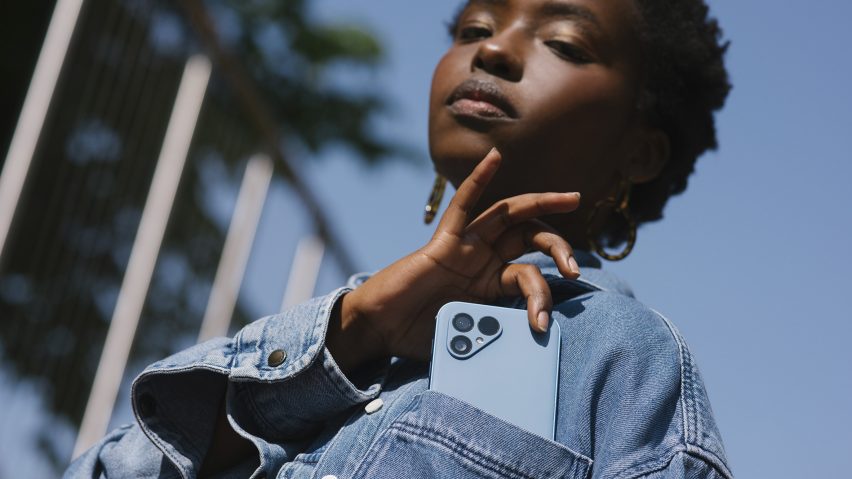Tech company Fairphone has worked with Swedish design agency Above to produce the latest version of its ethical smartphone, with a focus on reducing the environmental and social impacts of battery metal mining.
The Dutch social enterprise, which has been making its modular, repairable smartphone since 2013, said the Fairphone 5 has its "fairest battery yet" and the fairest on the market right now based on available industry data.
The company used recycled steel, nickel alloy, tin and plastic in the battery and aimed to improve the conditions of workers in its supply chain for other key metals such as lithium, gold and cobalt.
Its initiatives included sourcing the lithium from a mine that was one of the first to be audited against the IRMA Standard for Responsible Mining, which has been recognised by the EU as the strongest standard in the industry. It also uses Fairtrade certified gold and pays a premium to the factory workers involved in battery production, effectively giving them a living wage for the duration of the work.
The company also used "mineral credits", which are based on the idea of carbon credits or offsets and managed through the external organisations the Alliance for Responsible Mining and The Impact Facility.
The system involves Fairphone matching its material use with financial support for efforts to achieve safer working conditions and fairer production models in the mining of minerals such as cobalt and silver.
For instance, the company says its purchase of Fairmined silver credits will offset 100 per cent of its silver use and allow small-scale miners working independently of large companies to take actions such as adding ventilation systems and solar panels, assessing water and air quality, and investing in worker and community health.
Beyond just its battery, the Fairphone 5 is also what Fairphone calls "e-waste neutral" – meaning the company compensates for every new phone by recycling an equal amount of electronic waste or taking back and repairing old phones.
It includes upwards of eight years of software support and continues the brand's practice of featuring replaceable and repairable modules to extend the lifespan of the phone.
"The Fairphone 5 is better than ever, but more importantly, it's made with more fair and recycled materials and contributes to improving the lives of over 54,000 people in its manufacturing chain," said Fairphone co-founder and head of product management Miquel Ballester.
The phones have a Qualcomm QCM6490 chipset, which is unusual for smartphones and was designed by Qualcomm for Internet of Things products. Fairphone says that it is this choice that enables them to offer the longer software support that you would ususally find in those products.
It has commited to continuing support until 2031 and is aiming for 2033 — a total of eight to ten years, around twice the standard support time of other Android providers, therefore potentially allowing users to keep their phone for twice as long.
The Fairphone 5's battery is removeable and replaceable, along with nine other modules including the cameras, loudspeaker, USBC-port and SIM card slot and SD card slot.
Design agency Above says it has designed the components to be easier to remove and replace than previously, while also honing the modules to have their own visual appeal.
The modules are visible through a translucent recycled plastic back cover — one of three colour options for the Fairphone 5 and one that Above says is a "visual celebration of the innovation and sustainable ethos embedded within the product".
"We celebrate sustainability as a unique opportunity to craft beautiful products, shattering the myth that it demands design compromises," said Above senior creative director Ryan Helps.
Fairphone sold 115,681 handsets in 2022, and its sales have been slowly growing since its launch 10 years ago. The company's main aim is not to rival giants like Apple and Samsung on sales but to demonstrate best practices and grow the market for more ethical electronics.
Of its use of mineral credits, the company said it is "a scalable solution that is easily replicable by the industry".
"Imagine if the biggest companies in the industry were to shift their supply chains to even a fraction of fair sourced materials or implement even a few of our living wage initiatives?" said Ballester. "The impact would be enormous and our industry could change the world."
"Instead, it is lagging behind in its response to the big environmental and social challenges on the horizon."
Fairphone is headquartered in Amsterdam, in a warehouse on the northern docks renovated with reclaimed materials.

